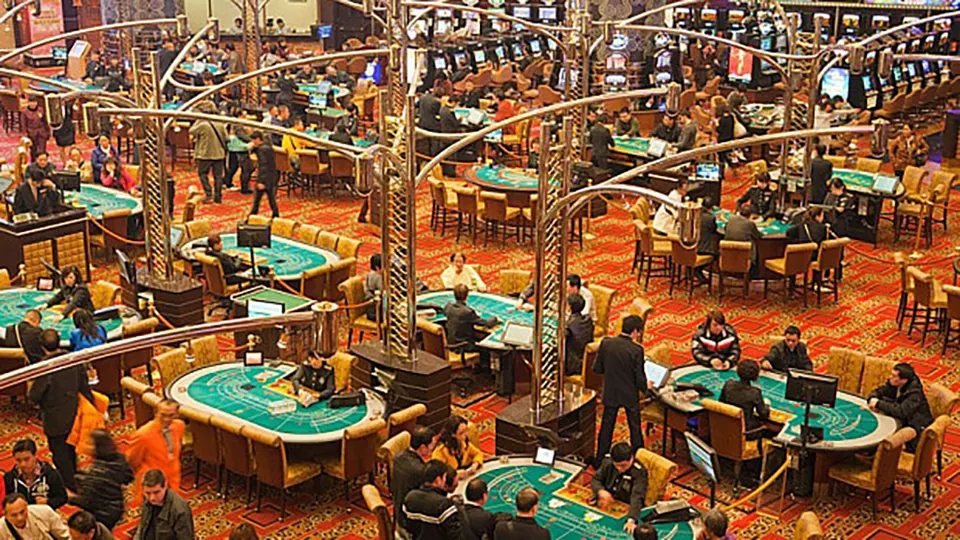A Resilient Recovery for Macau’s Gaming Economy
Macau’s gaming industry has once again demonstrated its strength and importance to the local economy, with Macau gaming tax collections reaching a staggering US$4.59 billion (MOP37.10 billion) in just the first five months of 2025. This figure underscores not only the significance of the gaming sector in Macau’s fiscal framework but also highlights the continued appeal of Macau as Asia’s top gambling destination in a post-pandemic world.
The latest data from the Macau Financial Services Bureau and the Gaming Inspection and Coordination Bureau (DICJ) paints a detailed picture of a maturing industry navigating evolving market dynamics, regulatory adjustments, and increased regional competition—all while recovering from the global effects of COVID-19.
Macau Gaming Tax Performance in Early 2025

apacaff | Between January and May 2025, the Macau gaming tax generated MOP37.10 billion in revenue for the government. This amount translates to approximately US$4.59 billion, holding steady compared to the same period in 2024. Despite some monthly fluctuations, this consistency signals a stable recovery and the continued dominance of gaming in Macau’s economic structure.
In May 2025 alone, the Macau government collected MOP7.27 billion (approximately US$900 million) in gaming tax. This marked a 4.8% decrease compared to April, reflecting minor month-to-month volatility that remains within expected bounds for the industry.
Macau as the Gaming Capital of Asia
Before delving deeper into 2025’s performance, it’s essential to understand Macau’s position in the global gaming landscape. Often referred to as the “Las Vegas of the East,” Macau has for decades been the go-to destination for high-stakes gambling and luxury entertainment in Asia. Revenues from the gaming industry have historically made up the bulk of government income, funding infrastructure, social services, and public initiatives.
The Pandemic Shift
The COVID-19 pandemic severely disrupted this economic engine, leading to border closures, travel restrictions, and plunging visitor numbers. In response, the Macau government enacted sweeping reforms aimed at revitalizing the industry, including the implementation of a new 10-year gaming concession system starting January 1, 2023. Under this system, the effective tax on casino gross gaming revenue (GGR) is approximately 40%, one of the highest rates globally.
Key Drivers Behind the 2025 Tax Revenue
Several factors have contributed to the solid performance of Macau gaming tax collections so far in 2025:
1. Steady Recovery in Tourism
As international travel continues to normalize and regional tourism rebounds, Macau has seen a gradual influx of visitors, especially from mainland China and neighboring Asian countries. The recovery of tourism is directly tied to gaming revenue, as the majority of visitors engage in gambling activities during their stay.
2. Regulatory Evolution
The Macau government’s approach to gaming regulation has become more refined. Recent adjustments aim to enhance transparency, ensure responsible gaming, and promote financial compliance. These changes have increased investor confidence and encouraged sustainable growth within the sector.
3. Diversification of Gaming & Entertainment
Macau has also expanded its portfolio beyond traditional table games and slot machines. The introduction of technology-driven innovations, such as electronic table games (ETGs), skill-based gaming, and non-gaming amenities like concerts, fine dining, and retail, has attracted new demographics. This broadening of the market base contributes indirectly to gaming tax revenues through higher overall spending.
GGR and Tax: The Connection and Discrepancy
While there is a strong correlation between gross gaming revenue (GGR) and Macau gaming tax, the numbers don’t always align perfectly due to administrative and timing factors. For example:
- Casino GGR for the first five months of 2025 reached MOP97.71 billion, a 1.7% increase from the same period in 2024.
- However, the timing of when GGR is recorded and when taxes are collected can differ due to reporting processes and payment cycles.
This discrepancy underscores the importance of analyzing both GGR and gaming tax figures to gain a comprehensive understanding of the industry’s performance.
Revised Government Forecasts and Budget Planning
Interestingly, despite the strong numbers early in the year, the Macau government recently revised its full-year 2025 GGR forecast downward from MOP240 billion to MOP228 billion, citing global economic uncertainties and cautious market conditions.
This adjustment has led to a revised projection for annual gaming tax revenues, down from an originally forecasted MOP93.12 billion. The revised figures are currently under review by the Legislative Assembly, reflecting the government’s conservative approach to fiscal management in an evolving market environment.
Economic Significance: Gaming Taxes as the Lifeline of Public Revenue
One of the most striking data points in the current fiscal landscape is the proportion of total government revenue derived from gaming taxes. According to the latest financial update:
Gaming taxes accounted for 86.4% of the Macau government’s current revenue between January and May 2025.
This heavy reliance on gaming tax revenues places pressure on both the government and casino operators to maintain high levels of performance, especially amid external risks and rising competition in Asia.
Expert Perspectives on Macau’s Gaming Tax Strategy
Dr. Alice Wong, Economist at Global Gaming Institute:
“The projected US$4.59 billion in gaming tax revenue not only reflects Macau’s strong recovery but also its adaptability. The government’s proactive regulatory and fiscal strategies are clearly paying off.”
On Regulation and Innovation:
“Balancing rigorous oversight with room for innovation is key. The gaming landscape is changing rapidly, and Macau must stay ahead to keep tax revenues flowing and stakeholders satisfied.”
Competitive Pressures and Global Challenges

Despite its successes, Macau’s gaming industry faces mounting challenges that could affect future tax collections:
1. Economic Uncertainty
Macroeconomic instability—ranging from inflation and interest rate shifts to geopolitical tensions—can reduce discretionary spending on entertainment and travel, directly impacting casino revenues.
2. Rising Regional Competition
Countries like Singapore, the Philippines, and Japan are increasingly vying for a piece of Asia’s gaming market. Their growing infrastructure and attractive gaming policies present a real threat to Macau’s dominance.
3. Regulatory Complexity
As Macau tightens regulations, some investors and operators may explore jurisdictions with more favorable or flexible tax structures. This could potentially divert both capital and consumer interest away from the SAR.
Looking Ahead: Sustainability and Strategic Innovation
To maintain or even exceed current levels of Macau gaming tax revenue, the industry must continue to adapt and innovate. Future strategies include:
- Smart Tourism Initiatives: Using data to better understand visitor preferences and optimize revenue.
- Green Gaming Infrastructure: Encouraging sustainable development of casinos and resorts.
- Digital Expansion: Exploring opportunities in regulated online gaming and eSports to diversify income streams.
The government’s ongoing dialogue with industry leaders will be crucial in shaping the future of the gaming sector and its tax contributions.
Conclusion: A Balanced Outlook for 2025 and Beyond
The collection of US$4.59 billion in Macau gaming tax between January and May 2025 is a strong indicator of both recovery and resilience. While challenges persist, the government’s balanced approach to regulation, innovation, and fiscal policy has positioned Macau to retain its leadership in the global gaming space.
As the rest of the year unfolds, stakeholders will continue to monitor GGR trends, tax reforms, and policy shifts that could shape the broader economic picture—not just for Macau, but for the international gaming industry as a whole.
In short, Macau gaming tax revenue remains a cornerstone of the region’s economy. Ensuring its continued growth will depend on smart policymaking, strategic innovation, and an unwavering focus on sustainability.












